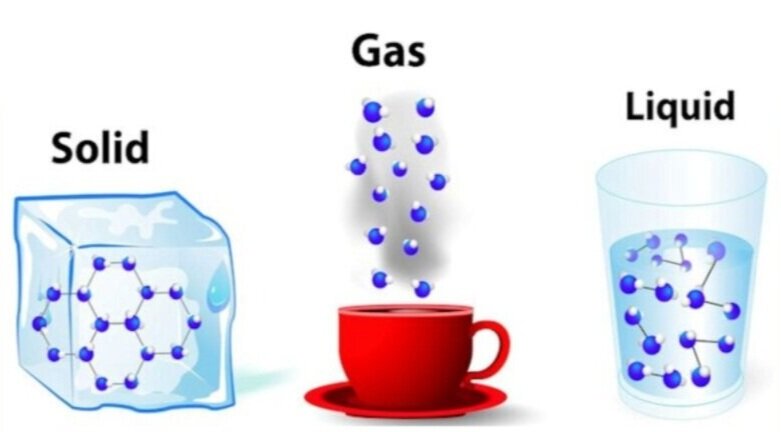3 States of Matter: Solid, Liquid, and Gas
Everything around you- from your food, your phone, your pet- is made up of matter. Matter is anything that has weight and takes up space. Matter can be solid, liquid, and gas, the 3 main forms of matter.
For instance, a bouncy call is solid. A solid keeps its shape. Even if you drop the bouncy ball numerous times, its shape is not going to change. In a solid state, the molecules, or the smallest unit of a substance, will be tightly packed together. As a result, this doesn’t allow any movement, making solids very sturdy.
When you are thirsty, you may drink juice, soda, or water. These are liquids, which take the shape of containers like a bowl or glass. This is different from a solid, which keeps its own shape. In a liquid state, atoms are still held together, but not as tight as the atoms inside a solid. Therefore, liquids flow freely and easily.
Gas fills the ENTIRE container. When you blow up a balloon, you fill the balloon with your air, a gas. In contrast to solids and liquids, the atoms in a gas are so spread out that they can move everywhere in a given space.
Let’s take a look at all 3 states of matter with water.
When water is solid, it is in the form of ice. To change ice to water, the liquid state, you must add heat. Usually, if you put ice on your countertop, it will become water in a few minutes. The heat helps loosen up the tightly packed molecules in ice to become a liquid. To change water from a liquid to gas, a lot of heat is needed, so you need to boil the water. When you boil the water, the molecules within the water will become very loose and move around. Vapor will emerge, creating gas.
Besides the 3 primary forms of matter, there are also 2 other forms called plasma and Bose-Einstein condensates. Because we don’t see these forms often, we don’t discuss them too much.
3 States of Matter
Picture Source: friendsofthehcpl.org

